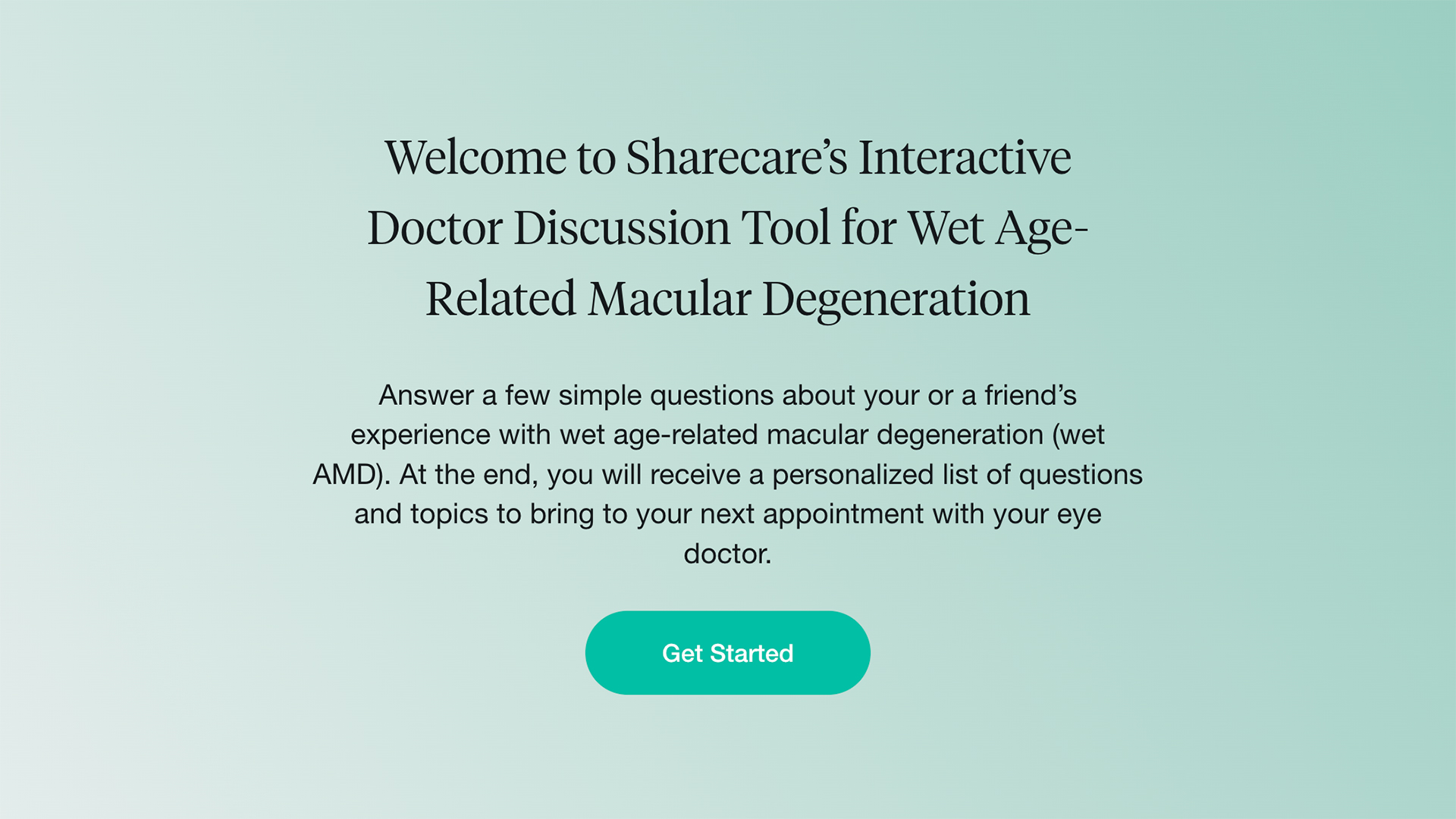One of the biggest challenges when living with wet age-related macular degeneration (wet AMD) is coping with the mental and emotional burdens that often accompany the disease. Here, we look at one of the oldest methods of managing difficult thoughts and emotions—meditation.
Wet AMD, central vision loss, and mental health
Wet AMD is an advanced form of age-related macular degeneration. The defining symptom of wet AMD is the formation of abnormal blood vessels within the eye. These blood vessels can begin to leak, causing vision loss that progresses quickly.
People who have wet AMD experience a type of vision loss called central vision loss—they lose the ability to see objects directly in front of them in detail. Central vision loss makes it difficult to perform many everyday tasks, such as reading or driving or preparing food. It can also make it difficult to recognize faces.
Vision loss can disrupt a person’s life in many ways. A person may need help with tasks they didn’t need help with in the past. They may spend less time with friends and loved ones because going out has become difficult. Many experience anxiety about the future and what will happen if their vision worsens.
The psychological and emotional impact of wet AMD should not be understated—this is a disease that can significantly increase a person’s risk of mental health conditions like anxiety and depression.
Meditating when you have wet AMD
Before getting into the benefits of meditation, it’s important to state the limitations of meditation—if you are struggling with difficult moods, emotions, thoughts, or behaviors, meditation is not a substitute for treatment. Mental health needs to be a part of your discussion with your healthcare providers, who can help make mental health a priority in your treatment plan.
An important part of treating wet AMD is improving your quality of life while living with wet AMD—and this is where strategies like meditation can be useful. A few of the ways that meditation may benefit people living with wet AMD include:
- Meditation can help counteract and reduce feelings of stress, anxiety, and depression, feelings that many people with wet AMD experience.
- Meditation can help you learn new skills for managing negative thoughts and emotions. For example, if you find that you are anxious about receiving anti-VEGF treatment for wet AMD, which involve injections of medication into the eye.
- Meditation may help lower blood pressure and may benefit people with hypertension. Hypertension (chronic high blood pressure) is a risk factor for wet AMD and can worsen wet AMD.
How to start meditating
One of the most popular types of meditation is called mindfulness meditation. If you want to try meditation, mindfulness meditation is a good place to start, and getting started is relatively easy:
- Find a place that is quiet and distraction-free, where you can sit or recline in a comfortable position.
- There are many video and audio recordings that can guide you through meditation, including many that are available for free.
- While guides can be useful, they are not always necessary. You can set a 3- to 5-minute timer and spend those minutes meditating. Try letting go of thoughts, and instead focus on your breathing, the sounds around you, and how your body feels.
While you’re meditating, you’ll find that thoughts can interrupt or your focus can wander—and that’s okay. Meditation is about practice, not perfection.






